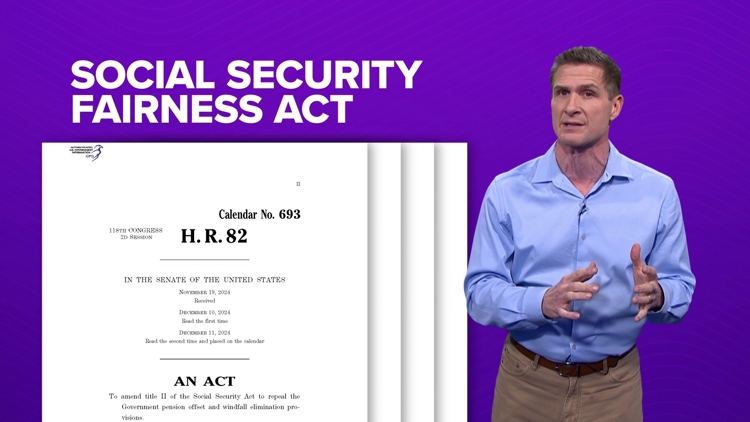DALLAS — All eyes are on the U.S. Senate.
The upper chamber of Congress is being closely watched because time is running out on this session, and on any bills that haven’t yet made it across the legislative finish line before a new session of Congress begins in January.
One of those bills still being considered as time runs out is the Social Security Fairness Act, which could increase or extend Social Security benefits to millions of Americans by canceling two things that currently limit a lot of Social Security checks: the Windfall Elimination Provision (WEP) and the Government Pension Offset (GPO).
Both of those limitations have been in place for decades.
They reduce or even eliminate someone’s Social Security payments if that person is also getting a monthly payment from certain pension plans. These provisions can affect a retiree or their spouse or their dependents if they receive monthly payments from certain pensions from jobs where Social Security taxes were not taken out.
One example: What if someone was a journalist for 12 years and FICA taxes were regularly withheld from their paychecks? That means for those dozen years, the journalist contributed to Social Security.
But what if that journalist then switched jobs and finished out their working years as a teacher, police officer, or firefighter…and contributed to a retirement pension plan, but no longer into Social Security?
When that person retires someday, supporters of the Social Security Fairness Act say the Social Security benefits the person earned (and paid into) in their first 12 years as a journalist shouldn’t be reduced or eliminated just because the person later became a public servant with a pension.
But opponents of the bill wonder why someone receiving a pension should also be rewarded with Social Security benefits after they only paid into the social safety net for 12 years when many Americans pay into it their whole adult lives.
Similarly, opponents of the bill wonder why someone who is a pensioner who never paid into Social Security should be able to get full spousal Social Security benefits. Critics of the proposed law also worry that its passage could hasten the financial strains that already pose future challenges to Social Security.
Texas has the most people (103,530 of them) who are affected by the Government Pension Offset, and who could potentially benefit if it is eliminated by the passage of the Social Security Fairness Act.
Texas has the second-most people affected by the Windfall Elimination Provision (215,773 of them), and it could potentially benefit if it is eliminated by the passage of the Social Security Fairness Act.
The House of Representatives already passed a similar measure, with overwhelming and bipartisan support, including from the Texas delegation.
A vote has been expected in the Senate in the closing days of this Congress. That prospect just picked up big public momentum, but right now the bill’s future is still uncertain.



